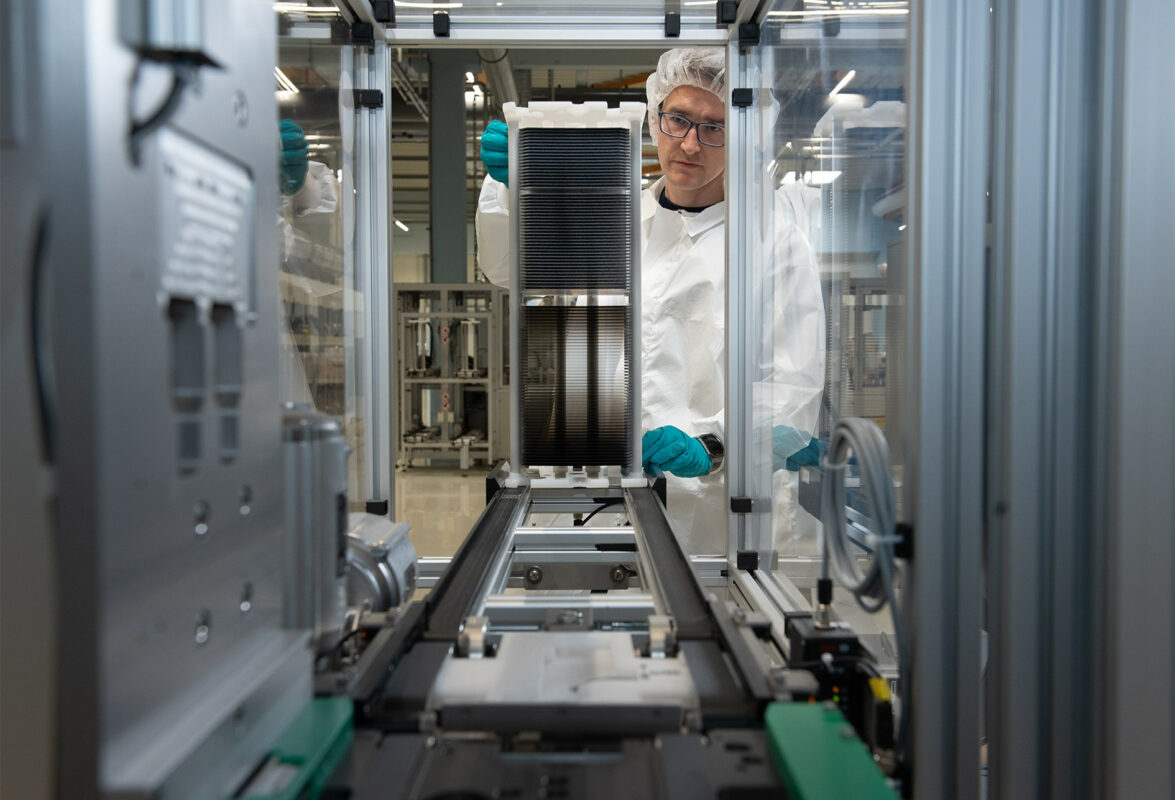
Oxford PV sets new ‘world record’ for commercial-sized solar cell efficiency. Image: Oxford PV.
Solar cell developer Oxford PV has set a 'new world record' for the efficiency of a commercial-sized solar cell, it said.
The record-breaking solar cell converted 28.6% of the sun’s energy into electricity, as independently certified by Fraunhofer ISE. This is a major breakthrough for the wider solar industry and could help create more efficient solar panels.
Oxford PV created the record-breaking solar cell by depositing a thin film of the material perovskite onto a conventional silicon solar cell. The organisation stated that “the combined ‘perovskite-on-silicon’ tandem solar cell achieves a conversion efficiency that is substantially higher than that of mainstream silicon-only solar cells, which average 22–24%”.
Despite Oxford PV being based in the UK, the solar cell was actually produced at its integrated production line in Brandenburg an der Havel, Germany. The factory commenced initial production of the company’s tandem solar cells for integration by solar module manufacturing partners and is now “ramping up to higher volumes”.
“Our latest efficiency achievement of 28.6% is more than 1.5% above our record set last year and exceeds our own roadmap plan of 1% annual increases. These record-setting solar cells are made on the same production line as our 27% efficient commercial solar cells, which already meet strict performance and reliability targets,” said Chris Case, chief technology officer at Oxford PV.
“Solar is already one of the least expensive and cleanest forms of energy available, and our technology will make it even more affordable. Solar panels integrated with Oxford PV’s solar cells produce more electricity from the same area, making them highly attractive for residential and commercial rooftops. For utility-scale solar farms, our technology will also help them reduce land usage and maintain biodiversity.”
Solar Power Portal reported in 2020 that Oxford PV had achieved a 29.5% conversion rate with perovskite solar cell. Oxford PV stated at the time it would be the first company to sell the next generation solar cells to the public from 2022.
Teesside University is also looking to increase solar cell efficiency and sustainability using mineral perovskite as part of a multi-million pound project.
This will be achieved via the SUNREY project (Boosting Sustainability, Reliability and Efficiency of perovskite Photovoltaic (PV) through novel materials and process engineering) which is formed of thirteen international partners including Teesside University and the University of Leicester.
Solar Power Portal's publisher Solar Media will host the UK Solar Summit on 27-28 June 2023 in London. The event will explore UK’s new landscape for utility and rooftop solar, looking at the opportunities within a GW+ annual market, and much more. For more information, go to the website.

